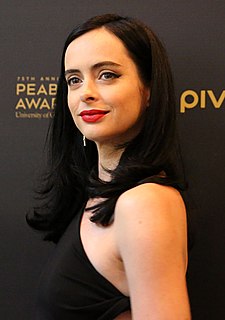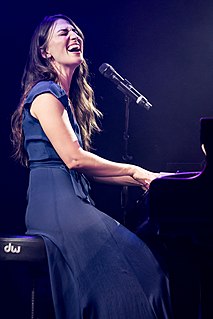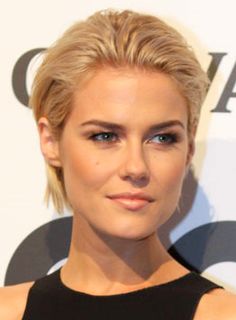A Quote by Melissa Rosenberg
I think one of the major differences between Wonder Woman and Jessica Jones is that Wonder Woman is iconic and much better known, so you get into a lot of ridiculous expectations, like what's her costume going to look like? Well, nobody knows who Jessica Jones is, except for fangirls and boys.
Related Quotes
There's no reason not to employ, seek out and take a chance on a woman filmmaker that you might not have been looking at her direction. She's not done it before because you've not given her the opportunity to do it before, and I'm just happy that folks like Jessica Jones' Melissa Rosenberg and folks like Ryan Murphy are also embracing this idea.
After 'Jessica Jones' came out, I started hearing firsthand from a lot of women who were so inspired by the character, who felt represented, who felt like watching Jessica on screen helped them in their own lives. Women are devouring content like that because everybody is complicated; not everybody is one thing.
































